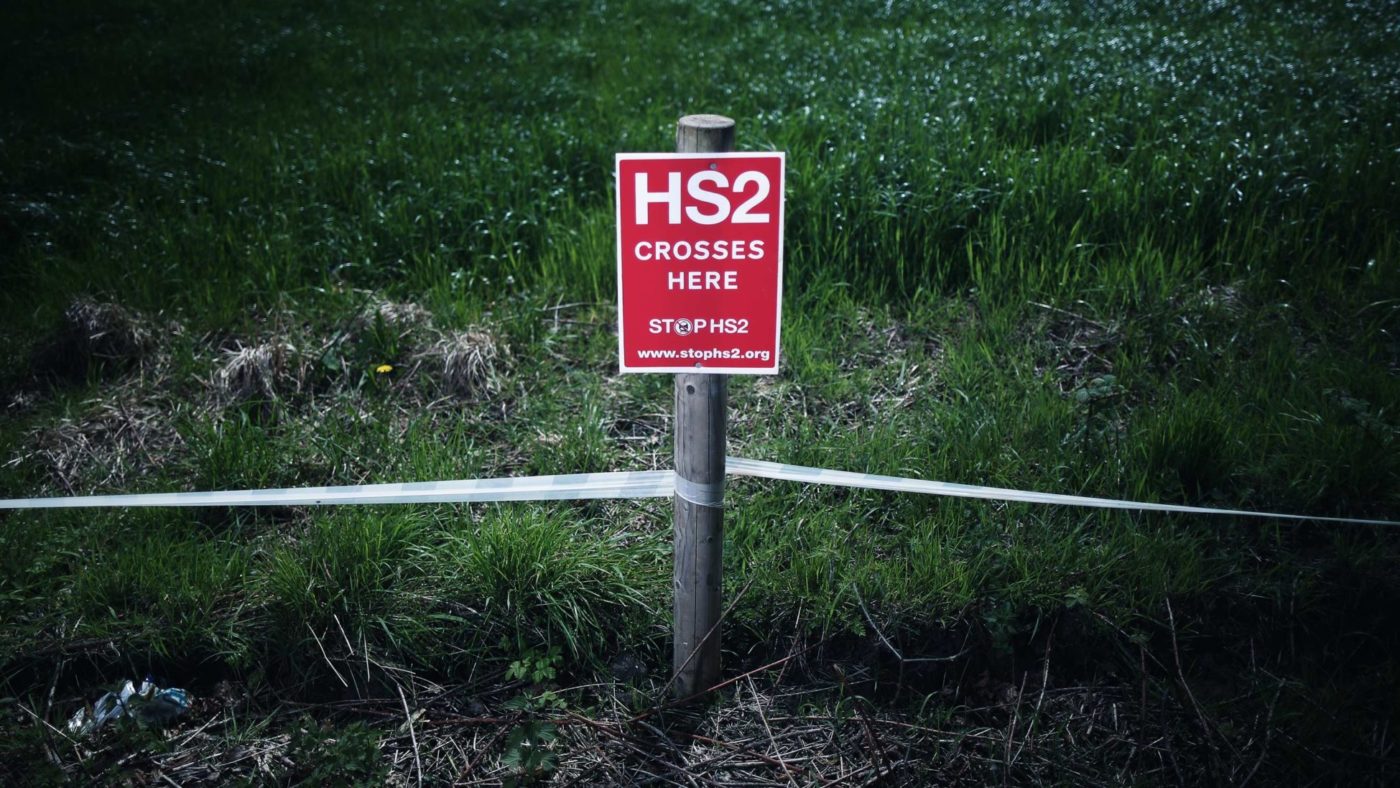As has long been predicted, HS2 is blasting through its budget limits. The latest difficulty is buying the land needed to build the train line over. As is normal in such things there’s more than a little vituperation about the prices paid and routes taken. The exercise of compulsory purchase powers tends to cause that. Amidst the anger, the crucial point is that HS2’s land costs are now estimated at some 300 per cent of what they started out as — £3.3 billion instead of £1.1 billion.
We might just accept this as further proof of the contention that the state isn’t especially good at building things. In fact, there’s only been one post-war public sector engineering programme which came in on time and budget and that was the set of nuclear missiles for submarines that we bought off the shelf from the Americans. The reason for this isn’t just state incompetence — although that clearly plays a part. It’s the political process itself. If, just to invent numbers, voters were told that a new project was going to cost £40 billion, we’d be less likely to support it than if it was said to cost £15 billion. And so all the incentives urge government to lowball the initial estimates, knowing that the true cost will only arrive after significant amounts have been spent. We humans are subject to the sunk cost fallacy: once we’ve started we’ll continue even when we shouldn’t.
Another way of putting the same thing is that detailing all the costs at the start would mean that a project would not pass a cost-benefit test. Whether we gain more value than we expend is really the only test of big infrastructure projects worth considering. Does it make us richer?
So, while lying is a most unparliamentary word, being economical with the truth is how these plans like HS2 are launched.
With this particular plan though we’ve another problem. Railways are a 19th-century technology and as a means of moving bulk freight long distances they’re still wondrous. As a means of moving commuters in and out of crowded areas they’re also great. To move people long distances, not so much. Air beats rail over more than 200 miles, perhaps for truly high speed rail 300 or 400 hundred miles. The assumption of HS2 is that rail still works over those interim distances, something which is just wrong for two entirely different reasons.
One is the emerging technology of truly autonomous cars. Yes, true, they’re not going to be here next year. But they will be in a decade or three and the economics of any new rail line depend upon it being used for many more decades than that. Those land acquisition costs need to be amortised over a century to make the sums add up. High speed rail though is, by definition, a terminus to terminus offering. It’s still necessary to get to that terminal point in order to get on board, similarly to dissipate the passenger load to specific destinations at the the end. The self-driving car will overcome that issue.
To repeat in part, trains are 19th century technology. Their use in long-distance passenger traffic is about to be killed off by a 21st century technology. When fully operational, autonomous cars will resemble each of us having our own train carriage taking us door to door. We just shouldn’t be investing in something about to be rendered technologically irrelevant.
However, as cute political plans so often are, the problems with HS2 don’t stop there. It’s value is already undermined by the strides in communication technology that we’ve taken in recent decades.
To understand the upside of something like HS2 we have to try and work out the value of getting someone somewhere faster. So, we assume that people trapped in a tin can can’t do anything other than contemplate the coffee as they hurtle through the countryside. Thus getting them there faster allows them to have more time to do something economically valuable like work. This is — and no kidding at all — how it is done. First class passengers have their time valued at some number — they can afford the ticket so we assume they produce more when they’re working. The rest of us have our time valued at less for we’d be less productive when we get there, the time saved thus has a lower value. Leisure travel is valued at the value of leisure time. Tot up all the value of all the hours saved and we’ve the economic value of the faster train. This really is how it is done.
But note that underlying assumption – that we can’t do anything while travelling. That’s not true at all now, thanks to mobile internet. Even at the speed it works on trains we can work. Or even contemplate spreadsheets on our laptops.
That is, time spent travelling is now, through the miracle of modern communications, economically productive time. We cannot therefore be using the assumption that getting somewhere faster has that economic value of people being productive as against travel time in which they are staring blankly into space. Once we adjust for this, there is no case for HS2 nor, in fact, any other high speed train line in a place as small as the UK.
Rail has its uses for freight, for commuting, but making it faster for the long distance movement of people just doesn’t tot up any more, both because of that coming revolution of point to point travel with the autonomous car and the extant ability to work while travelling over mobiles, laptops and the internet. There simply isn’t an economic case left for fiddling the amount we pay the landowners nor even for the project to build it in the first place.
In which case, why are we doing it? And shouldn’t we stop?


